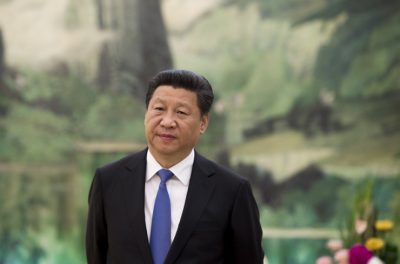Xi Jinping’s Third Term May Boost International Cooperation Towards Multipolarity

All Global Research articles can be read in 51 languages by activating the Translate Website button below the author’s name.
To receive Global Research’s Daily Newsletter (selected articles), click here.
Follow us on Instagram and Twitter and subscribe to our Telegram Channel. Feel free to repost and share widely Global Research articles.
***
On October 22, the 20th Congress of the Communist Party of China (CPC) ended in Beijing. The Politburo Standing Committee approved the continuation of the Xi Jinping’s government, reelecting him for a third term as Party leader and President of the People’s Republic of China. The next day, the new members of the Central Committee and Politburo were named, thus announcing the institutional arrangement that will guide China for the next five years.
“China cannot develop without the world, and the world also needs China. After more than 40 years of unwavering efforts towards reform and opening up, we have created two miracles – rapid economic development and long-term social stability”, Xi said commenting on his victory. He also emphasized that the CPC is able to perform “new and greater miracles during a new march into a new era” and urged the party to “strengthen its historical confidence and initiative, as well as fight boldly and achieve victories”.
Although contested in the West, with journalists and pro-US propagandists accusing China of maintaining a dictatorial and anti-democratic political structure, the result in Beijing was applauded by international leaders, especially by the leaders of non-aligned countries.
As expected, North Korean leader Kim Jong Un was one of the first to publicly comment on the topic, sending his congratulation to Xi:
“Please accept my warmest congratulations to you on the happy news that the 20th Congress of the Communist Party of China has been successful and you have been reelected as General Secretary of the Party Central Committee”.
Russian President Vladimir Putin also commended the Chinese Congress’ outcome and made clear his aim to continue current Russian-Chinese comprehensive cooperation:
“I will be glad to continue our constructive dialogue and close joint work on the development of comprehensive partnership and strategic cooperation between our countries”.
In the same vein, Iranian President Ebrahim Raisi congratulated Xi and praised the importance of bilateral cooperation in order to achieve common goals:
“The realization of the goals of Comprehensive Strategic Partnership between Iran and China creates a model of an all-out expansion of ties based on mutual interests and respect”.
As far as India is concerned, the official government’s press channel published a note on the internet expressing congratulations:
“Chinese President Xi Jinping re-elected as General Secretary of Communist Party of China for a record third five-year term”.
It is important to note that, although both countries have historical rivalries and several frictions have occurred in recent years, the bilateral situation has improved substantially in latest months. China and India have mutually engaged in the construction of a multipolar world and for that they have agreed to alleviate local tensions. Not long ago, both sides demilitarized the border zone as a mutual gesture of diplomatic goodwill. So, the continuity of Xi’s leadership may be a positive sign to India-China relations.
In fact, Xi’s victory was extremely significant because it not only represented a formal presidential reelection, but also a victory for his project for China. The few changes that took place during the Congress were aimed at further strengthening the pro-Xi coalition and isolating the liberal anti-government parliamentarian wing. With this, Xi acquires greater capacity both to deepen existing projects and to initiate new political and economic activities.
Since the economic reopening, there has been a power struggle in China between the national elite and the Party bureaucracy. Xi has gradually managed to isolate lawmakers committed to the interests of the Chinese bourgeoisie, who often diverge from the government’s strategic plans. The current management has strengthened the party bureaucratic formation and reduced the political relevance of the owners of national private companies. With another five years in power, economic projects are expected to advance in this direction, deepening the so-called Chinese “people-centered economy”, which prioritizes projects to combat poverty both domestically and in other emerging nations involved in the Belt and Road Initiative.
In addition to the economy, Chinese foreign policy also seems to continue to grow in the direction of cooperation projects with emerging nations interested in contesting the US unipolar order. Wang Yi remains as the head of foreign affairs, which signals stability for the current projects. Xi made it clear in several speeches that the Chinese objective in international relations is to build an order without any hegemonic power, where states cooperate freely, based exclusively on pragmatism.
With his reelection, the Chinese President becomes one of the strongest and most enduring leaders in the history of his country. Domestically, Xi is expected to continue his project of modernizing China’s political and economic governance. Internationally, his leadership strengthens Beijing’s position as one of the main players in the global transition towards multipolarity.
*
Note to readers: Please click the share buttons above. Follow us on Instagram and Twitter and subscribe to our Telegram Channel. Feel free to repost and share widely Global Research articles.
Lucas Leiroz is a researcher in Social Sciences at the Rural Federal University of Rio de Janeiro; geopolitical consultant. You can follow Lucas on Twitter and Telegram.
Featured image is from New Eastern Outlook

